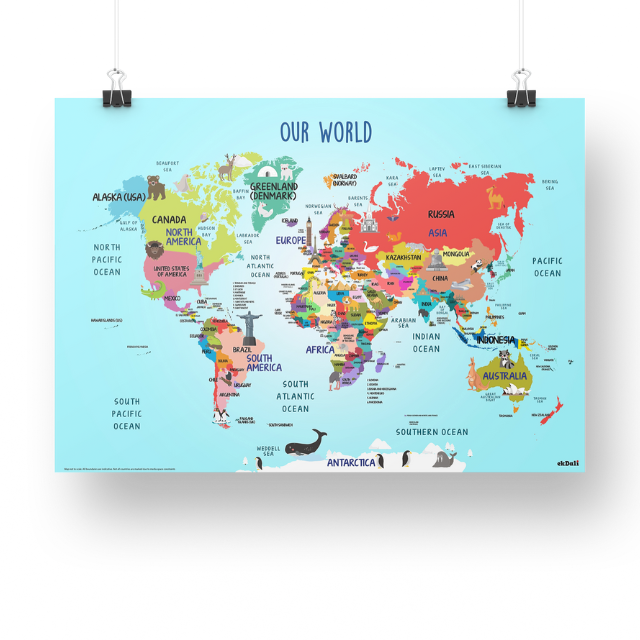Fundamentally, much as knowing the alphabet is required for reading and multiplication tables for arithmetic, learning geography is required to know where places are and some facts about those places so you can identify why they are different.
Geography, history, and civics are rarely taught in schools nowadays, which is a big worry given the increased emphasis on globalisation and the global economy.
Future leaders who lack geographical knowledge will struggle to analyse world events and make sensible judgements, let alone understand basic physical systems of everyday existence, such as the effects of the solar system on climate, water cycles, ocean currents, and so on.
Geography Aids Understanding of Your Own Country
Geography studies teach you about diverse regions on Earth and how they interact with one another. Typically, you begin by learning about your own neighbourhood, region, country, continent, and so on as your experience grows.
You can expect to learn about your country when it comes to:
Knowledge of geography helps you become a better citizen. Learning geography enables you to recognise and understand significant events and national and international policies; make better and more educated decisions about how to best manage national resources; and ask pertinent questions about policies that maximise the landscape and land use. A better leader is a more informed citizen.
Economics and geography have a close relationship in terms of the level of industrialization or energy production; transportation networks and technological applications; the location of natural resources; and many other factors that influence trade patterns and the economy of the country and region.
Learning geography enables you to recognise and appreciate crucial clues to your country's history, such as the impact of landforms and climate on land use, the rise and fall of civilizations, and migratory patterns, among other things. Knowing the landscape's history might help you grasp the transformation processes that have occurred.
Geography also examines the link between humans and the environment, as well as how natural systems function. Geographers perform research to determine the influence of environmental elements in population behaviour, as well as the effects of social processes such as population growth and technological improvements on the environment. These considerations are crucial in developing environmental policy for global conservation.
Geography Aids Understanding of the World
Geography also provides you with the tools to appreciate international issues, multicultural concerns, and environmental issues. You learn to read maps, interpret local and global data, and comprehend international trade networks, among other things.
All of this material enables you to combine numerous concepts from the humanities, social sciences, and science, as well as apply critical thinking to contemporary challenges at the local, national, and worldwide levels. However, it begins with assigning some hours or days per week in the educational system for the study of various geographical features.
-
 Posters, Flash Cards and Books are Great Conversation Starters
Posters, Flash Cards and Books are Great Conversation Starters -
 Our Posters and Flash Cards have reached over 300,000 kids
Our Posters and Flash Cards have reached over 300,000 kids -
 Same day shipping for orders before 1 PM. Next day shipping for orders post 1 PM
Same day shipping for orders before 1 PM. Next day shipping for orders post 1 PM -
 Write to us purchase@ekdali.com
Write to us purchase@ekdali.com




















